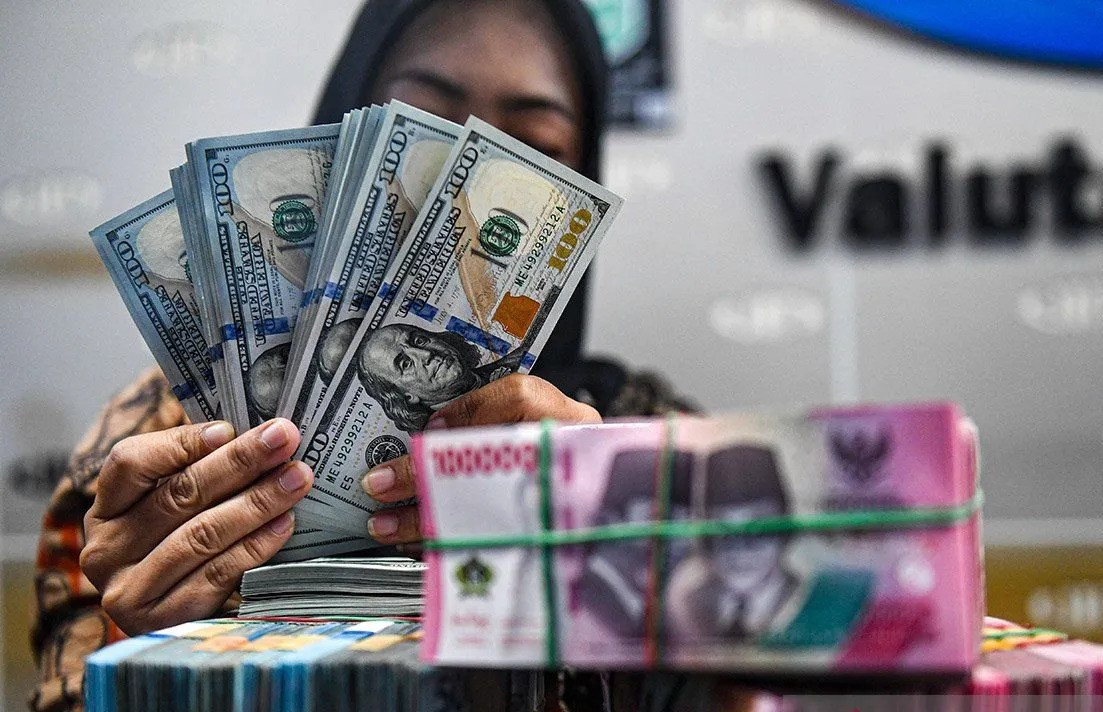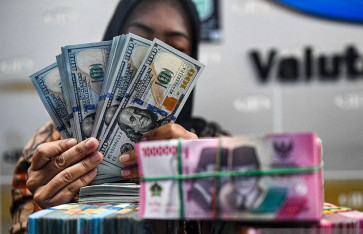Popular Reads
Top Results
Can't find what you're looking for?
View all search resultsPopular Reads
Top Results
Can't find what you're looking for?
View all search resultsDealing with volatility
Bank Indonesia (BI) has reiterated its use of triple intervention policies to stabilize the market, supported by large foreign exchange reserves, which stood at US$155.7 billion in December 2024. However, volatility persists, often following political events related to the US government.
Change text size
Gift Premium Articles
to Anyone
I
n the past few weeks, global stock markets have come under pressure due to a series of geopolitical events. These include the trade war reignited by the United States, stalled talks on the Russia-Ukraine peace deal and increasing tensions among Western countries.
Further, US President Donald Trump has signed new tariffs on China, Canada and Mexico that will become effective soon. The tariffs will be met with retaliatory measures, prompting fears of an escalating trade war and creating volatility across markets.
Market volatility has been felt globally, including in Indonesia. The Thailand SET Index has dropped by 14.7 percent, the Philippines’ PSE by 7.1 percent, Japan’s Nikkei by 6.4 percent and Malaysia’s KLCI has dropped by 5.1 percent since the start of the year.
Indonesia’s financial markets have also been heavily impacted. The JCI Index has declined by 9.8 percent year-to-date. A combination of global geopolitical developments and economic uncertainties have created a perfect storm for Indonesia’s financial markets. Capital flight, mainly from the stock market has put pressure on the currency. The rupiah depreciated to as low as Rp 16,580 per US dollar, weaker than its previous peak of Rp 16,394 in June 2024.
Bank Indonesia (BI) has reiterated its use of triple intervention policies to stabilize the market, supported by large foreign exchange reserves, which stood at US$155.7 billion in December 2024. However, volatility persists, often following political events related to the US government. During these challenging times, we are reminded of the need to strengthen the fundamentals as well as deepening Indonesia’s financial markets to reduce the impact of global volatility. Depreciation of the rupiah has mostly been driven by the limited foreign exchange (FX) supply, coupled with increasing FX demand for imports, debt repayment and capital reversals, which are key factors creating pressure on the rupiah.
Stricter natural resource export proceeds (DHE SDA) regulations to support FX liquidity
To increase FX liquidity and reduce pressure on the currency, stricter rules regarding the repatriation of the proceeds of natural resource (SDA) exports have been introduced. Exporters are now required to bring all their foreign exchange earnings back into Indonesia. These proceeds must be deposited into domestic banks or BI instruments and held for one year. However, the government now allows the use of these proceeds for specific payments such as FX liabilities, taxes or import payments.



















